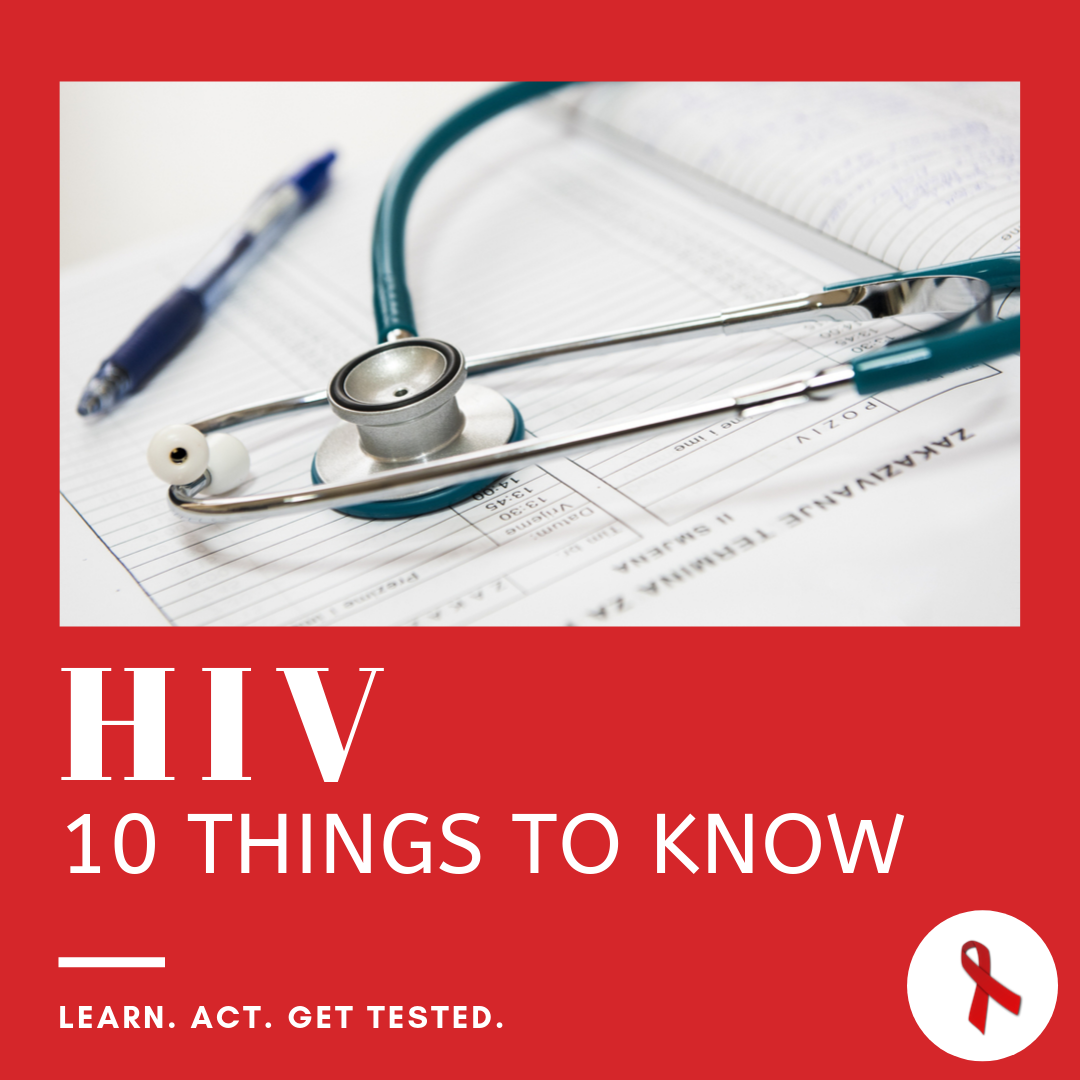
In Malaysia, an average of 3,400 new HIV infections occurs each year (between 2010-2017). There is currently about 87,122 of HIV-infected people living in Malaysia (2017). Out of this, only 83% of people know about their HIV status, thus 17% are unaware that they have HIV! The majority of infected persons are men.1
Apart from the health impact of HIV, being infected with HIV comes with social and emotional challenges as this condition is associated with social stigmas. To help clarify certain misconceptions, we have compiled answers to 10 common HIV-related questions:
#1. Is HIV & AIDS the same thing?
- Human immunodeficiency virus (HIV) is a virus.
- Acquired immunodeficiency syndrome (AIDS) is a late disease stage of HIV infection, this stage is serious and fatal.
- It is not the same thing. If HIV is left untreated, it turns into AIDS.
- AIDS is a stage of the disease where the body’s CD4 cells (which help fight against harmful pathogens) is depleted. The immune system would be very weak at this stage; which will result in fatal infections and death.
#2. What does HIV do to my body?
- HIV attacks the immune system gradually by killing immunity cells CD4.
- After some time, the immune system will wear down and be less effective in protecting the person from diseases and infections.
- People with AIDS die after their immune system is defeated by the HIV virus, leaving the person exposed to opportunistic infections.
#3. How is HIV transmitted?
- HIV can be transmitted via:
- The activity of sharing of drug needles
- The activity of sharing of body fluids such as:
- Blood
- Semen and sperm, including pre-cum
- Fluids in the female vagina
- Fluids secreted in the rectum
- Breast milk
- (*HIV is not transmitted via saliva)
#4. What are the symptoms of HIV?
- HIV symptoms resemble symptoms of the flu, i.e.:
- Flu
- Fever
- Fatigue
- Sore throat
- Headache
- Muscle aches
- Joint pain
- Swollen lymph nodes
- If you are involved in the activities mentioned in #3, and have symptoms as above, please get tested for HIV at the nearest clinic.
#5. How long does it take for HIV symptoms to appear?
- 40-90% of newly infected HIV people experience symptoms within 2-4 weeks after exposure.
- The symptoms may persist for a few days to a few weeks.
#6. Can I tell if someone has HIV?
- It is not possible to tell if someone has HIV.
- A common misconception is that people with HIV are thin. This is not true. HIV can infect anyone, regardless of background, race, gender and sexual orientation.
- The only way to know is by getting tested for HIV at the nearest clinic
#7. Is there a cure for HIV?
- There is no cure for HIV.
- However, treatments are now available to suppress the virus to allow people with HIV to live long, healthy and normal lives.
#8. If HIV is left untreated, how long will it take to develop AIDS?
- From the point of initial HIV infection, it can take between 5-10 years to develop AIDS.
- A recent finding of an HIV subtype called CRF9 takes only 3 years to develop AIDS.
- As mentioned in #1, AIDS is fatal. Therefore a person with HIV should seek treatment as soon as possible to prevent AIDS.
#9. I do not have HIV, but how do I protect myself?
- Do not share drug needles.
- Do not be exposed to risky behaviour involving sharing of bodily fluids (as per #3).
- Practice safe sex (use of condoms).
- Pre-exposure prophylaxis (PrEP) is a new way of preventing HIV by up to a success rate of 92%. PrEP involves taking a pill daily. This prevention therapy is recommended for people who are at risk of getting HIV.
- Post-exposure prophylaxis PEP is an anti-HIV medication that is to be taken as soon as possible (within 72 hours) upon exposure to HIV. This can reduce the chance of becoming infected. This therapy is to be taken for 28 days daily starting from the first day of suspected HIV exposure.
- Speak to a doctor for more information on PrEP and PEP.
#10. I may have HIV, who can I reach out to for more support?
- HIV testing is available at all ‘Klinik Kesihatan’. You may also approach private clinics for HIV testing.
- The following organisations provide very useful information, they also provide advice, support and counselling:
- Malaysian AIDS Council: http://www.mac.org.my/v2019/where-you-can-reach-out-to/
- TemanTeman.org Malaysia: http://www.temanteman.org/mycontent.php?id=98
- PT Foundation: http://ptfmalaysia.org/v2/hidden/face-to-face-counseling/
- Kuala Lumpur AIDS Support Services Society (KLASS): http://klass.org.my/contact-us/
References:
- Country Progress Report on HIV/AIDS 2018. Ministry of Health Malaysia.
- The top 10 questions about HIV, answered. J Myhre. Everyday Health. (Web page visited Oct 2019). Weblink: https://www.everydayhealth.com/hs/hiv-health/top-questions-hiv/
- Malaysia Aids Council. (web page visited October 2019). Weblink: http://www.mac.org.my/
Tags
Latest Health Info
Brave the Cold: Winter Travel Needs
Winter travel has its kind of magic — snow-covered landscapes, cozy lodges, hot drinks, and festive markets. But traveling in ...
Beat the Heat When Travelling
Whether you’re on a scenic beach vacation or exploring a busy city, hot weather can quickly wear you out and ...
Got Pins & Needles? Learning about Diabetic Neuropathy
Diabetic neuropathy is a common yet serious complication of diabetes, estimated to affect up to 50% of people with the ...




